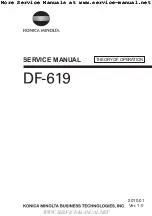
Rotational Vacuum Concentrator RVC 2-18 CDplus
HCl resistant version
3 Safety
Version 04/2012, Rev. 2.3 of 03/07/2017
• sb
21 / 84
Translation of the original operating manual
3.6.3
Fire prevention
Fuses protect certain electrical circuits within the RVC against over-current
conditions.
GEFAHR
• Always use fuses of the same type and rating.
• Do not evaporate explosive or inflammable substances.
• Do not use the RVC within hazardous locations where there is a risk of
explosion.
3.6.4
Thermal safety
During the evaporation process, the housing, lid and interior of the RVC
can reach surface temperatures of more than +50°C.
DANGER
• Open and close the lid at the heat-insulated handle!
• Ensure that no limbs come into contact with hot unit parts or
accessories. Danger of burns!
• Wear heat-resistant gloves when inserting or removing the rotors.
3.6.5
Chemical and biological safety
If pathogenic, toxic, or radioactive samples are intended to be evaporated,
it is in the responsibility of the user to ensure that all necessary safety
regulations, guidelines, precautions, and practices are adhered to
accordingly.
DANGER
• Infectious, toxic, pathogenic, and radioactive substances must be
evaporated in suitable accessories. Take suitable precautions for your
own safety!
• Do not evaporate corrosive products (especially substances containing
acids) without special protective measures and devices such as, for
example, a cooling trap for the protection of the vacuum pump. Contact
the manufacturer (see chapter 7.2 - "Service contact").
• Special caution is necessary when handling azides, as a dangerous
explosive develops in combination with copper or nonferrous metals! It
is absolutely necessary to contact the manufacturer (see chapter 7.2 -
"Service contact").
• Keep informed about local measures to avoid harmful emissions
(depending on the substances to be evaporated).
• As personal protective equipment, safety gloves are required for the
use of the RVC.
The materials to be evaporated may, however, require additional
special safety measures (e.g. drying of infectious, toxic, radioactive, or
pathogenic substances)
















































